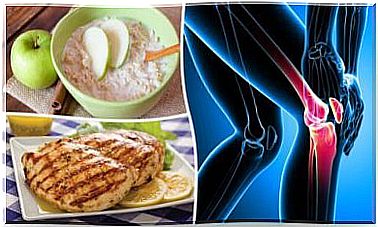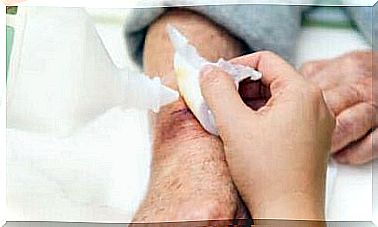3 Tips To Avoid Food Cross Contamination
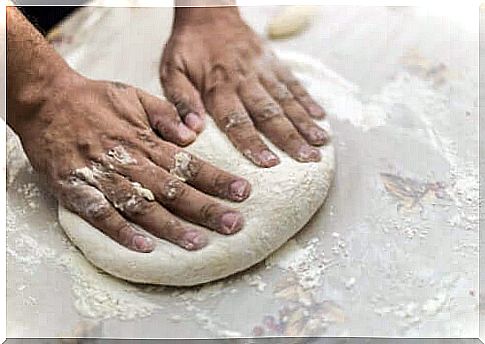
In diseases such as celiac disease, it is especially important to avoid cross-contamination. This is a phenomenon in which a person may be poisoned by allergens or microorganisms present in the product or dish that have come into contact with the food they eat.
So here are some tips to avoid cross-contamination . Thanks to this, you will reduce the risk of developing acute pathologies resulting from poisoning or an allergic reaction. Don’t forget that maintaining food safety measures is essential to protecting your health.
3 tips to avoid cross contamination
We will explain 3 details to consider when handling the food you intend to eat. Pay attention to how you can reduce your risk of infection or getting sick.
1. Do not allow cooked and raw food to come into contact
Food that has undergone the cooking process, as a rule, contains inactivated microorganisms and toxins that can generate pathologies. Scientific evidence suggests that nematodes such as anisakis are destroyed when exposed to low or high temperatures.
However, if we put cooked food in contact with fresh food that contains harmful bacteria, they can pass from one product to another and start to reproduce. This increases the microbial risk and cross-contamination occurs.
We recommend that you always set aside a space in the kitchen for those dishes that have already passed the cooking process. It should be clearly separated from where there are ingredients that have not yet gone through this process. A very typical example is mixing cooked vegetables with still raw meat or fish.
There are health risks associated with this practice, especially when animal products have not been previously frozen or sanitized.
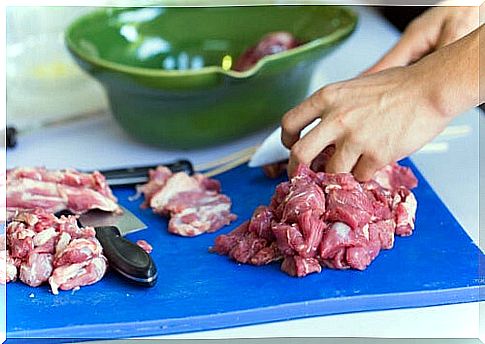
2. Do not use the same knife to cut all your food
Just as you should not combine raw and cooked products, you should not use the same cutlery to process them . A common example of an unavoidable cross-contamination is using the same cookware for foods that contain gluten.
A study published in the Journal of Food Protection ensures that freshly washed cutlery should always be used when preparing meals for a person with celiac disease. In addition, it is important that they do not come into contact with any food that may contain gluten.
The same can happen if the product in question contains bacteria that are pathogenic to humans. When handling different products, the knives should be thoroughly washed to avoid the risk of cross-contamination.
3. Pans and oils are also means of transmission of infection
In addition to the careful handling of the dishes, all kitchen utensils should be disinfected after use. Bacteria or allergens that may remain in them after cooking may be transferred to the food placed in the container.
People suffering from celiac disease are most susceptible to this type of cross-infection. However, there are cases in which bacteria manage to survive in a container and begin to reproduce upon contact with food introduced into it.
On the other hand, for such a situation to take place, certain conditions must occur, and it is not as easy as it seems. In order for the allergen or bacteria to cause specific damage, they must occur in a minimum dose.
As stated in a study published in the Journal of Food Protection , poisoning rarely occurs when the food is loaded in negligible amounts of bacteria.
People with celiac disease put themselves at risk of this kind if they don’t try to avoid cross-contamination. In these patients, few proteins are needed to trigger the autoimmune process.
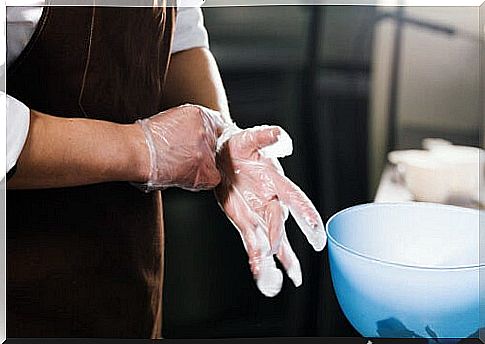
Pay attention to food hygiene to avoid cross-contamination
Food poisoning due to carelessness is more common than you might think. For this reason, be careful to follow the recommendations we have proposed to reduce this risk.
While too much hygiene can also be harmful in the long run, a lack of it even more so. Especially when handling food, try to avoid certain behaviors that are considered risky.
Also, do not forget that thorough cooking and well-executed freezing processes can deactivate many pathogenic organisms that can cause poisoning and serious health problems. For example, anisakis is deactivated by exposing fish to very low temperatures.
Make sure you follow the basic rules we’ve explained to you in this article. Also check the quality and hygiene of kitchen utensils used to process food. No precautionary measures can hurt.

